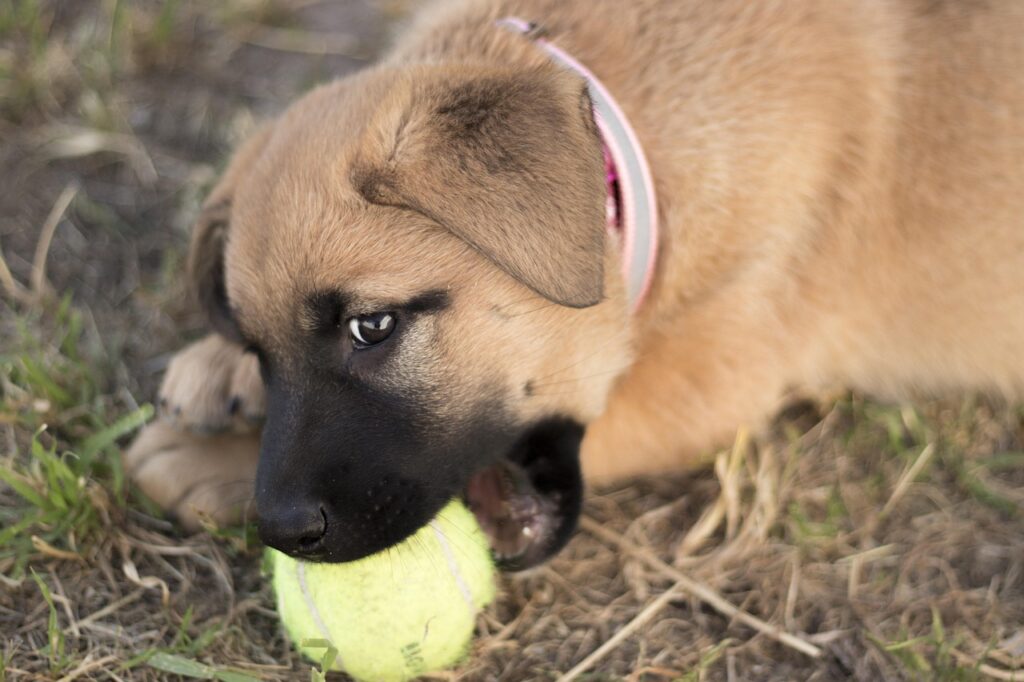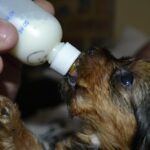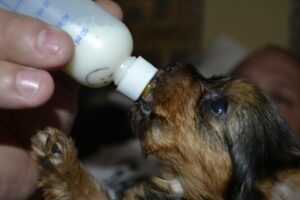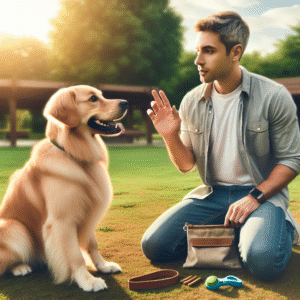
Puppy biting is a common behavior that many new puppy owners face. While it is a natural behavior for puppies as they explore their world through their mouths, it is crucial to address and manage it effectively to prevent it from becoming a long-term habit. This article will explore several effective strategies to stop puppy biting quickly, ensuring a well-mannered and happy pet.
Understanding Why Puppies Bite
Before delving into strategies, it’s essential to understand why puppies bite in the first place. Recognizing the motivation behind this behavior can guide you in implementing the right approach:
Exploration and Teething
Just as human babies explore the world with their hands and mouths, puppies use their mouths to explore their environment. Additionally, teething can cause discomfort, prompting them to chew and bite on various objects to soothe their gums.
Play Behavior
Biting is a natural part of play for puppies. In a litter, puppies bite each other as part of their play. This interaction helps them learn the difference between gentle mouthing and hard biting.
Attention-Seeking
Puppies may bite to gain attention from their owners. If biting results in a reaction, even a negative one, they may continue the behavior to solicit attention.
Strategies to Stop Puppy Biting
Implementing the right strategies can effectively curb puppy biting. Here are several techniques to consider:
Redirect to Appropriate Chew Toys
Provide your puppy with a variety of chew toys. When they attempt to bite, redirect their attention to a toy. This strategy not only helps in managing biting but also satisfies their need to chew, especially during teething.
Implement Bite Inhibition Training
Bite inhibition is the ability of a dog to control the force of its bite. Teach your puppy that biting is acceptable only when it’s gentle.
- When your puppy bites too hard, let out a high-pitched yelp or say “ouch” to mimic how puppies communicate discomfort to each other.
- Stop playing with them immediately and walk away for a short period.
- Return after a few moments and resume play. Consistent repetition teaches them that hard bites result in playtime ending.
Use Positive Reinforcement
Reward your puppy for good behavior. When they stop biting or play gently, offer praise or treats. Positive reinforcement strengthens desirable behavior, encouraging your puppy to repeat it.
Set Clear Boundaries and Consistency
Consistency is key. Ensure all family members follow the same rules and training techniques. Mixed signals can confuse the puppy, making it harder for them to learn what is expected.
Provide Sufficient Exercise and Mental Stimulation
Often, biting can be a result of excess energy or boredom. Ensure your puppy gets plenty of physical exercise and mental stimulation through play, walks, and interactive toys. A tired puppy is less likely to engage in unwanted biting behavior.
When to Seek Professional Help
In some cases, biting may persist despite your best efforts. If your puppy’s biting is aggressive or does not improve with consistent training, consider seeking professional help. A professional dog trainer or a behaviorist can provide tailored solutions to address the problem.
Signs of Aggression vs. Playful Biting
It’s crucial to distinguish between playful biting and aggressive behavior. Playful biting is usually gentle and occurs during playtime, while aggressive biting may be accompanied by growling, snapping, or other signs of hostility. If aggression is suspected, professional guidance may be necessary.
Conclusion
Stopping puppy biting requires patience, consistency, and understanding. By employing the strategies outlined in this article, you can effectively teach your puppy the boundaries of acceptable behavior, ensuring a harmonious relationship within your household. Remember, every puppy is unique, and what works for one may not work for another. Be patient, remain consistent, and enjoy the journey of raising a well-behaved and happy canine companion.
#ChatGPT assisted in the creation of this article.















